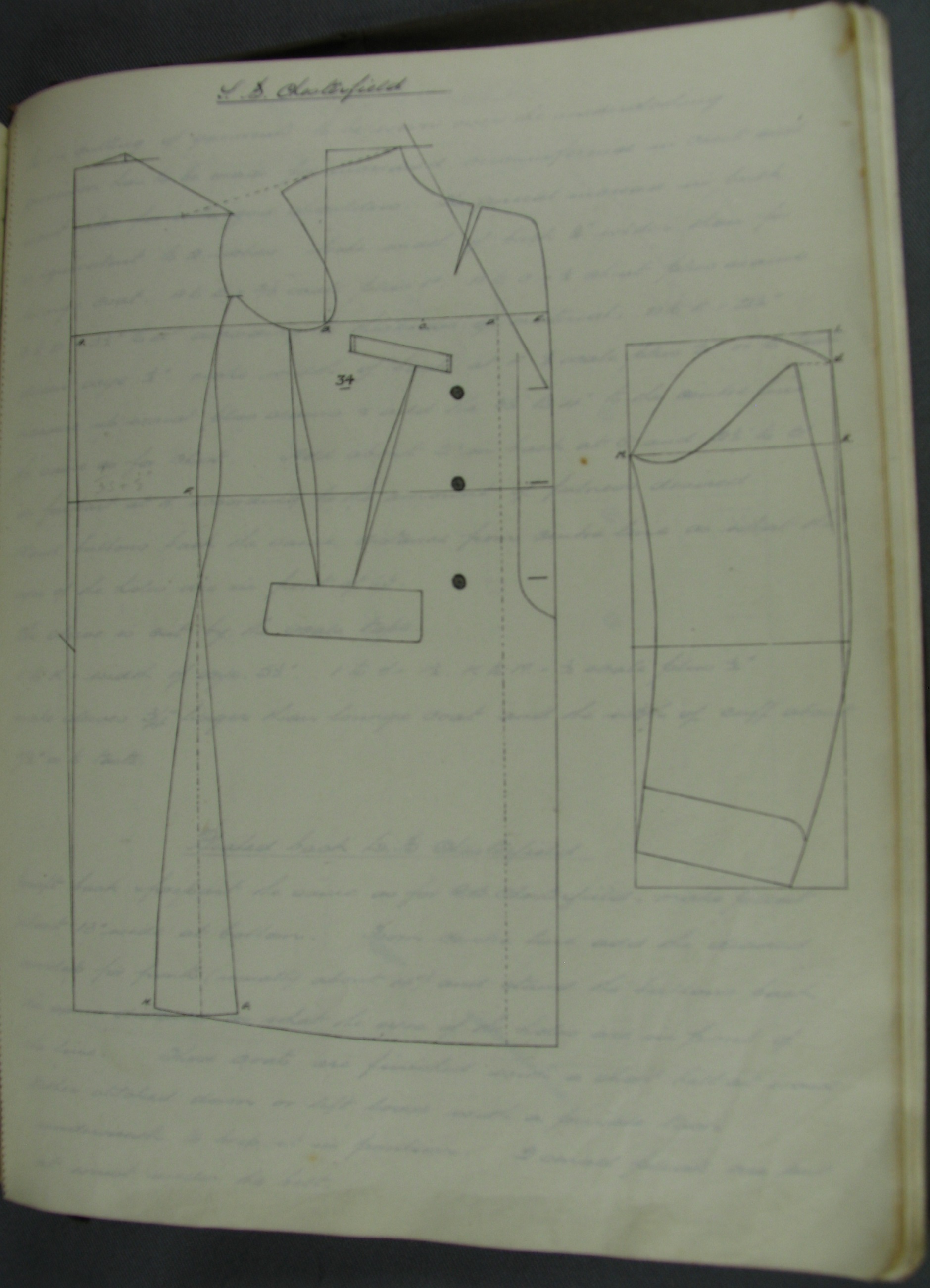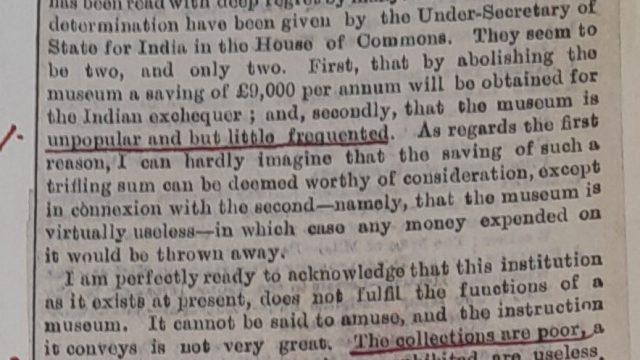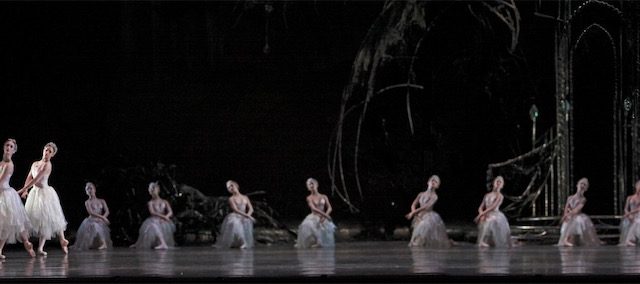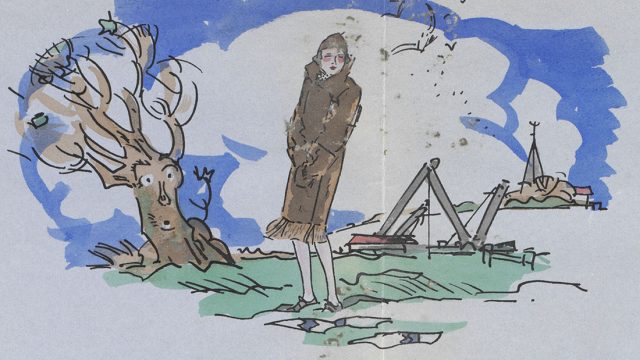The centenary of the beginning of World War One this year has inspired re-enactors and costumers to take up their needles and explore the clothing of the period. I’d have been tempted to join in myself if I wasn’t suffering from sewing fatigue from my last project, a 1760s Rococo sacque back gown, which was a massively time consuming labour of love. As it is, I have a wonderful excuse to explore some of the resources available for researching costume of this period in the Archive of Art and Design.
Fashion archives as a whole tend to be more representative of ladieswear and the higher end of the market, so collections that break this mould are highly valued by an archivist trying to expand the diversity of their collections. One archive of particular interest is that of Denman and Goddard Ltd, a tailors and woollen drapers, which contains records dating from 1833 to 2008. This company were makers and suppliers of all kinds of uniform, from Eton School to military.

My favourite item from this collection is a book of patterns. This is very difficult to date accurately. Papers placed inside the volume can provide a rough indication of the date and range from the years 1911 to 1928. This volume contains a remarkably rich record for menswear of the period and comprises of patterns for a large variety of men’s coats, trousers and other accoutrements. There are even variations on patterns for the corpulent gentleman. These patterns also come with measurements and a page of detailed instructions about the construction of the garment.
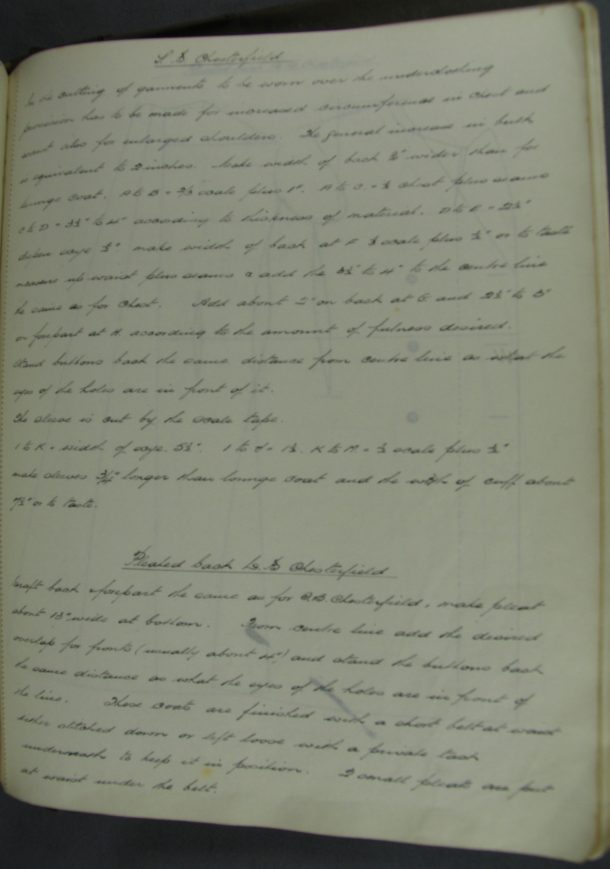
We have several archives relating to couture houses of this period, one of which is Lucile. This fashion house, operating from the 1890s to the 1930s, was named after its lead designer, Lucy, Lady Duff-Gordon, who went by the name Lucile. Lucile was one of the most successful businesswomen of her era and at the height of her popularity employed over 2000 people. She was most celebrated for her lingerie, tea gowns and evening gowns, but designs for smart tailored daywear can also be found within the collection.
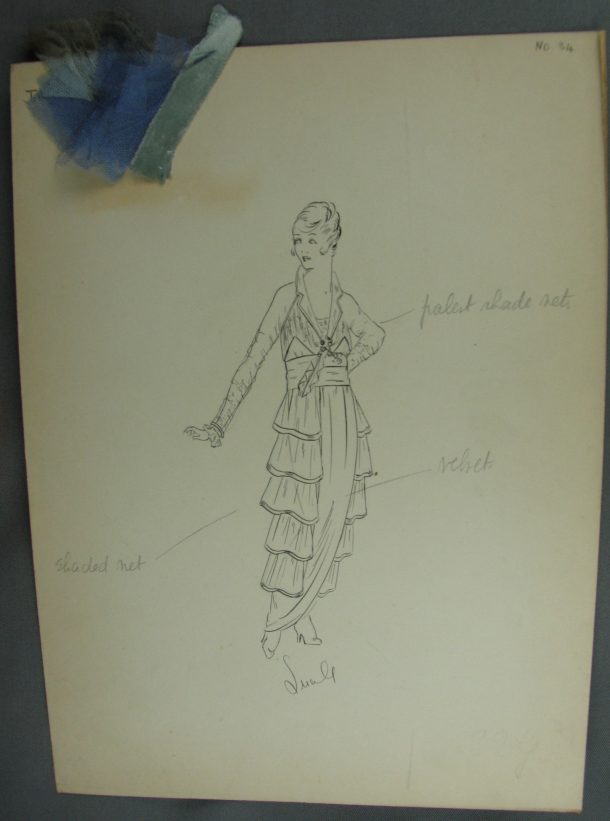
The Lucile archive contains a large quantity of material relating to ladieswear in the years 1914-1918. It consists of hundreds of drawings and prints of designs, sometimes with textile samples attached. The examples above and below have been dated to around 1914. They both have fabric samples attached to them; the above design has coloured net and velvet attached, the below example has velvet alone. These fabric samples are invaluable for visualising the final intended design – they provide information about texture and colour that cannot be fully represented using pencil and paper alone.
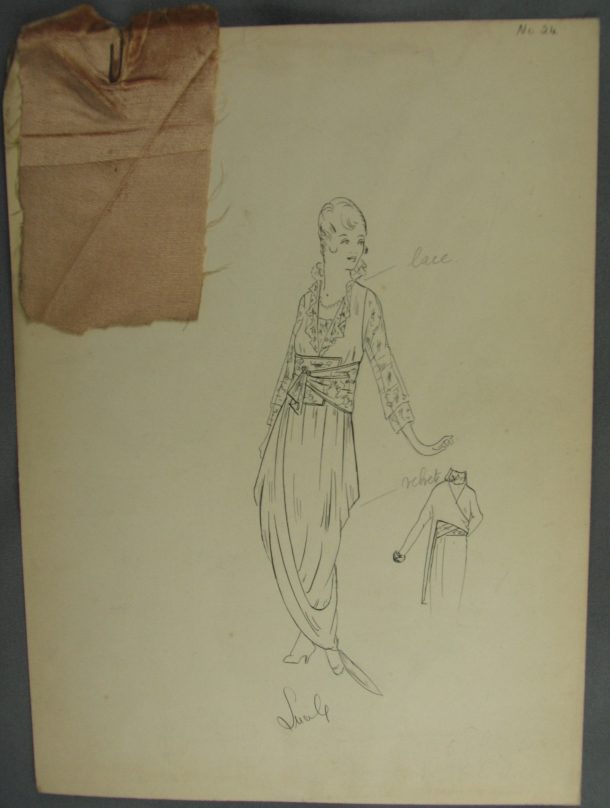
The photographic record is also plentiful for the Lucile archive. The example below comes from a photograph album of the fashion house’s Autumn 1915 collection modelled on living mannequins. This provides a very useful impression of Lucile’s finished designs as well as intended hair styling and accessories.
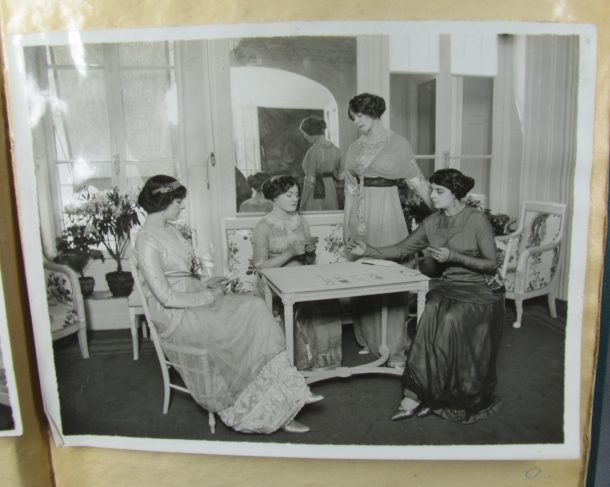
You can further explore the Archive of Art and Design’s fashion and textile collections at The Blythe House Study Room, which serves the Archive of Art and Design, the V&A Archive, the V&A Theatre and Performance Collections and the Beatrix Potter Collections. It is open Tuesdays to Fridays, from 10.00 to 16.30, by appointment. Further details of how to make enquiries and access the archives can be found on our homepage.
